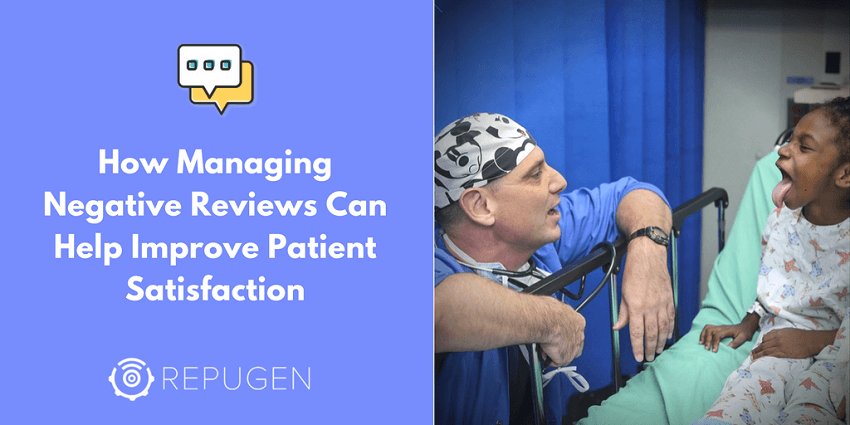
“This doctor is scum, a cheater! Visit him only if you want to get robbed for a pathetic treatment.” This is a snippet of a real review by a real patient on a well-known physician's review website – in the internet world things can sometimes get harsh. Where a bulk of positive reviews can help your business gain a great online reputation among your patients; even a few inflammatory comments (like the one given above), can compel many of your prospective patients to withdraw their interest in your service, at any time sooner or later. [Tweet "How Managing Negative Reviews Can Help Improve Patient Satisfaction"]
A direct rebuttal of the reviewer or a response clarifying about your position in respect to what you were accused of won't help. You may even get unwantedly involved in a spat with the reviewer patient, which will only show you under a negative light to other patients. Furthermore, Health Insurance Portability and Accountability Act (HIPAA), and state privacy laws prevent physicians from responding directly to the negative commentary online.
By tactfully responding to the negative reviews, you can actually turn even your most angry patients into your most loyal ones. By 'tactful response', we mean a combination of a concern-indicating reply and some countermeasures to eliminate the very cause of anger, thus improving patient satisfaction. Review management isn't just about working on increasing the number of positive reviews and decreasing the amount of negative reviews about your practice. It's also about taking clues from the negative reviews, as to where you lack as a service provider; and what you can do to improve on those fronts, providing a better experience and satisfaction to your patients. [Tweet "A tactful response to a negative review can help turn your angry patients into your most loyal ones."]
Studies suggest that your patients are more likely to leave reviews if they leave your office unhappy, than when they leave happy and satisfied. Even if your patient found you the traditional way, they are still going to the internet to validate their feelings, again especially when they are not happy with your service. In our recent Patient Satisfaction Benchmark Survey 2017 for dental practices, primary cares, and urgent cares, we found these:
This indicates a necessity of instituting programs by the dentists and healthcare providers for increasing patient satisfaction.
Improving patient satisfaction largely depends on how you stand on your patient's expectations. Responding tactfully to their negative reviews is the first step towards understanding and dealing with their possible bad experience with you.
0 Comment
Your email address will not be published. Required fields are marked *